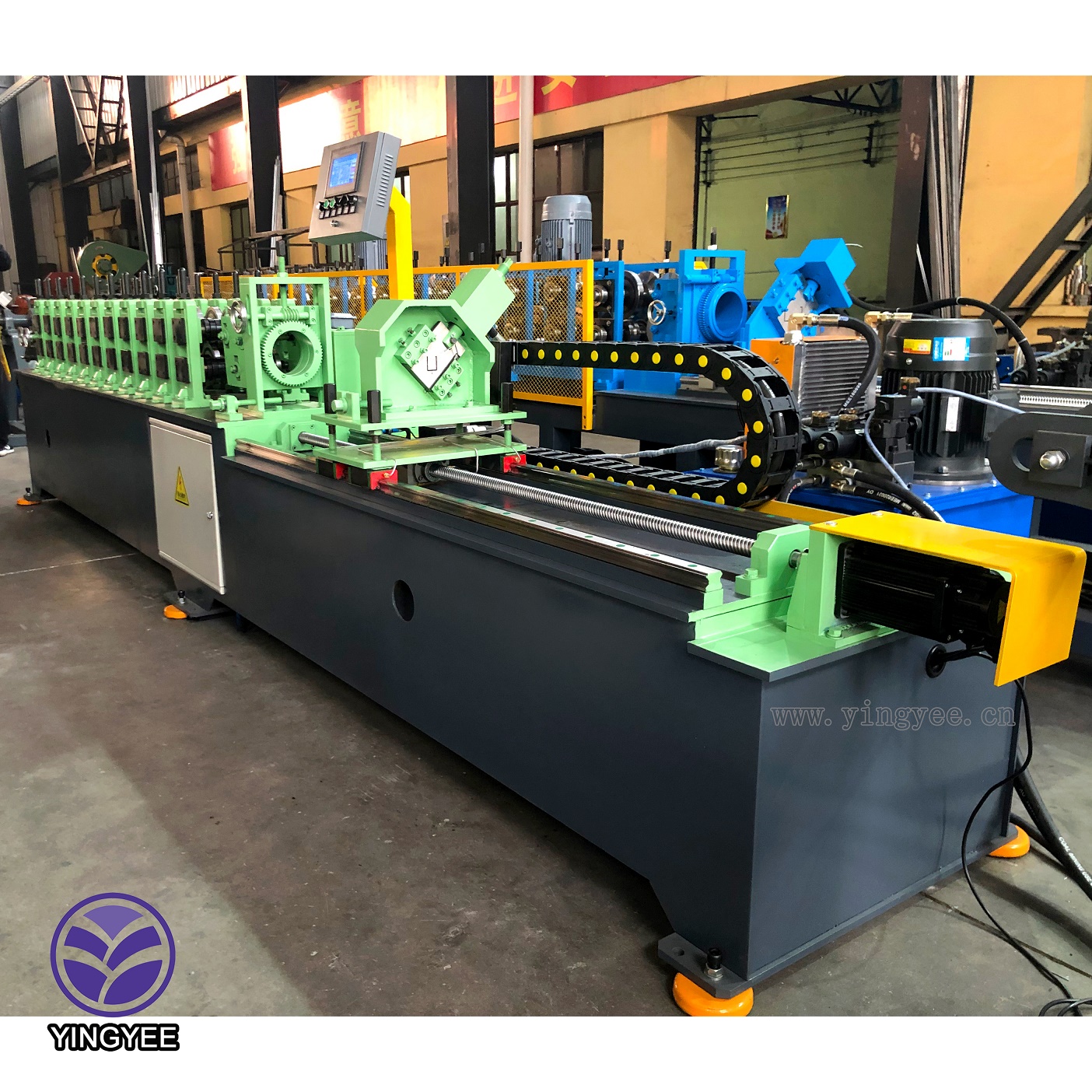
The Evolution and Benefits of Metal Roofing Tile Roll Forming Machines
In the realm of modern construction and architectural design, roofing plays an integral role in ensuring the durability and aesthetic appeal of buildings. Among the various roofing materials available today, metal roofing has gained significant popularity due to its longevity, energy efficiency, and versatility. Central to the production of metal roofing materials are metal roofing tile roll forming machines, which have revolutionized the way these materials are manufactured. This article explores the evolution, functionality, and benefits of metal roofing tile roll forming machines.
Evolution of Metal Roofing Tile Roll Forming Machines
The journey of roll forming technology began in the early 19th century, originally utilized in the production of metal forms for various applications. With advancements in manufacturing techniques and material science, the roll forming process has evolved dramatically. The introduction of metal roofing tile roll forming machines marks a pivotal moment in the construction industry, as these machines are designed specifically to create high-quality metal roofing tiles efficiently and economically.
These machines incorporate advanced technology, including computer numerical control (CNC), which allows for precision and customization. As the demand for aesthetically pleasing and resilient roofing solutions has risen, manufacturers have adapted their equipment to produce tiles that mimic traditional materials such as clay or slate, while providing the inherent advantages of metal.
Functionality of Metal Roofing Tile Roll Forming Machines
Metal roofing tile roll forming machines operate through a series of rollers that reshape metal sheets into desired tile profiles. The process begins with large coils of metal, typically made from materials like galvanized steel, aluminum, or copper. These coils are fed into the machine, where they undergo a series of bending and shaping processes to create the finished product.
The versatility of these machines allows them to produce a variety of tile designs and finishes. Operators can adjust settings to change the width, thickness, and profile of the tiles, accommodating different architectural styles and customer preferences. Moreover, the machines can integrate additional features, such as embossing or coating systems, to enhance the tiles' aesthetic appeal and durability.

Benefits of Metal Roofing Tile Roll Forming Machines
1. Efficiency and Speed One of the most significant advantages of metal roofing tile roll forming machines is their efficiency. These machines can produce large quantities of tiles in a relatively short amount of time, reducing labor costs and increasing productivity. In an industry where time is often of the essence, this efficiency is invaluable.
2. Cost-Effectiveness The initial investment in a metal roofing tile roll forming machine can be substantial; however, the long-term savings are considerable. By streamlining the production process and minimizing material waste, these machines lower manufacturing costs. Furthermore, metal roofs generally require less maintenance than traditional roofing materials, leading to additional savings over their lifespan.
3. Durability and Longevity Metal roofing tiles produced by roll forming machines are renowned for their strength and longevity. Resistant to extreme weather conditions, fire, and pests, these roofs can last 50 years or more with proper care. This durability not only provides peace of mind for homeowners but also contributes to the sustainability of building projects.
4. Design Versatility The ability to produce a wide range of tile designs makes roll forming machines highly versatile. Architects and builders can select from various profiles and finishes, allowing for creative roofing solutions that meet both functional and aesthetic needs. This flexibility is particularly appealing in markets where customization is increasingly demanded.
5. Environmental Impact Metal roofing is often made from recyclable materials, contributing to sustainable building practices. Additionally, metal roofs are energy efficient, reflecting heat and potentially lowering cooling costs in buildings. The manufacturing process of roll forming machines also generates less waste compared to traditional roofing production methods.
Conclusion
The impact of metal roofing tile roll forming machines on the construction industry cannot be overstated. They represent a perfect blend of technology, efficiency, and design innovation, meeting the demands of modern builders and homeowners alike. As the trend towards sustainable and durable building materials continues to grow, the role of these machines will expand, shaping the future of roofing solutions for years to come. Investing in a metal roofing tile roll forming machine is not just a strategic business decision; it's a commitment to quality, efficiency, and sustainability in construction.